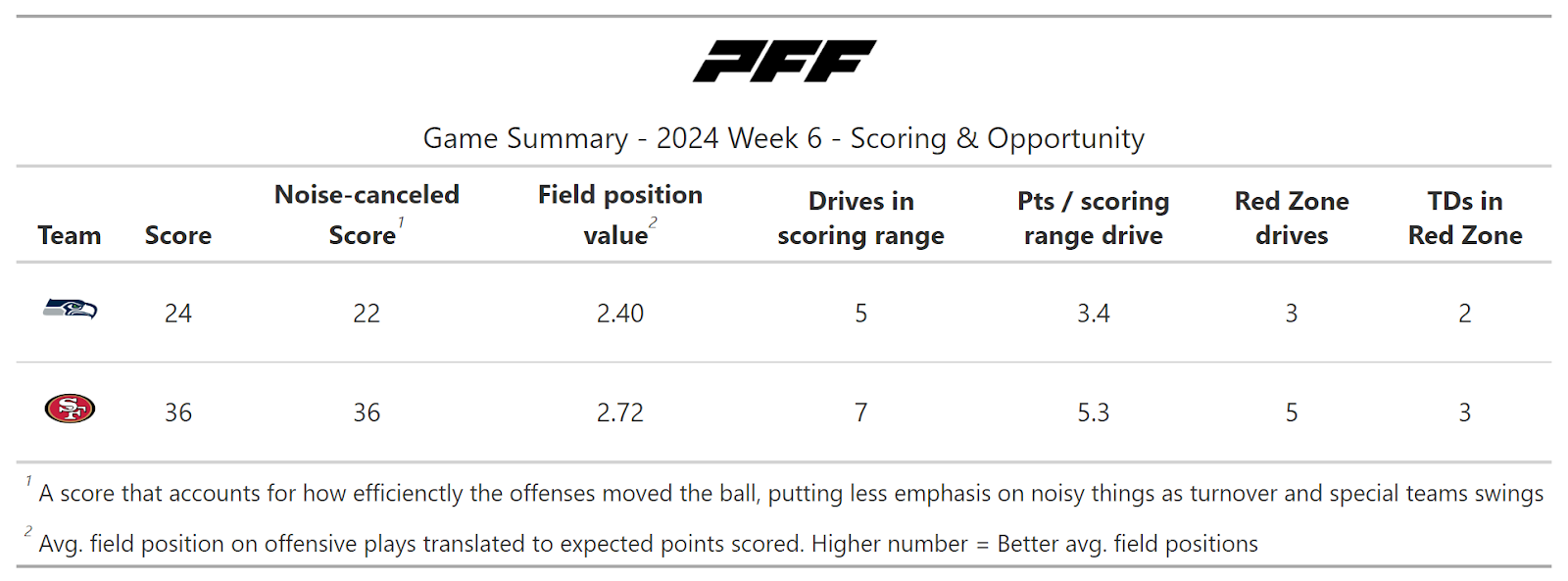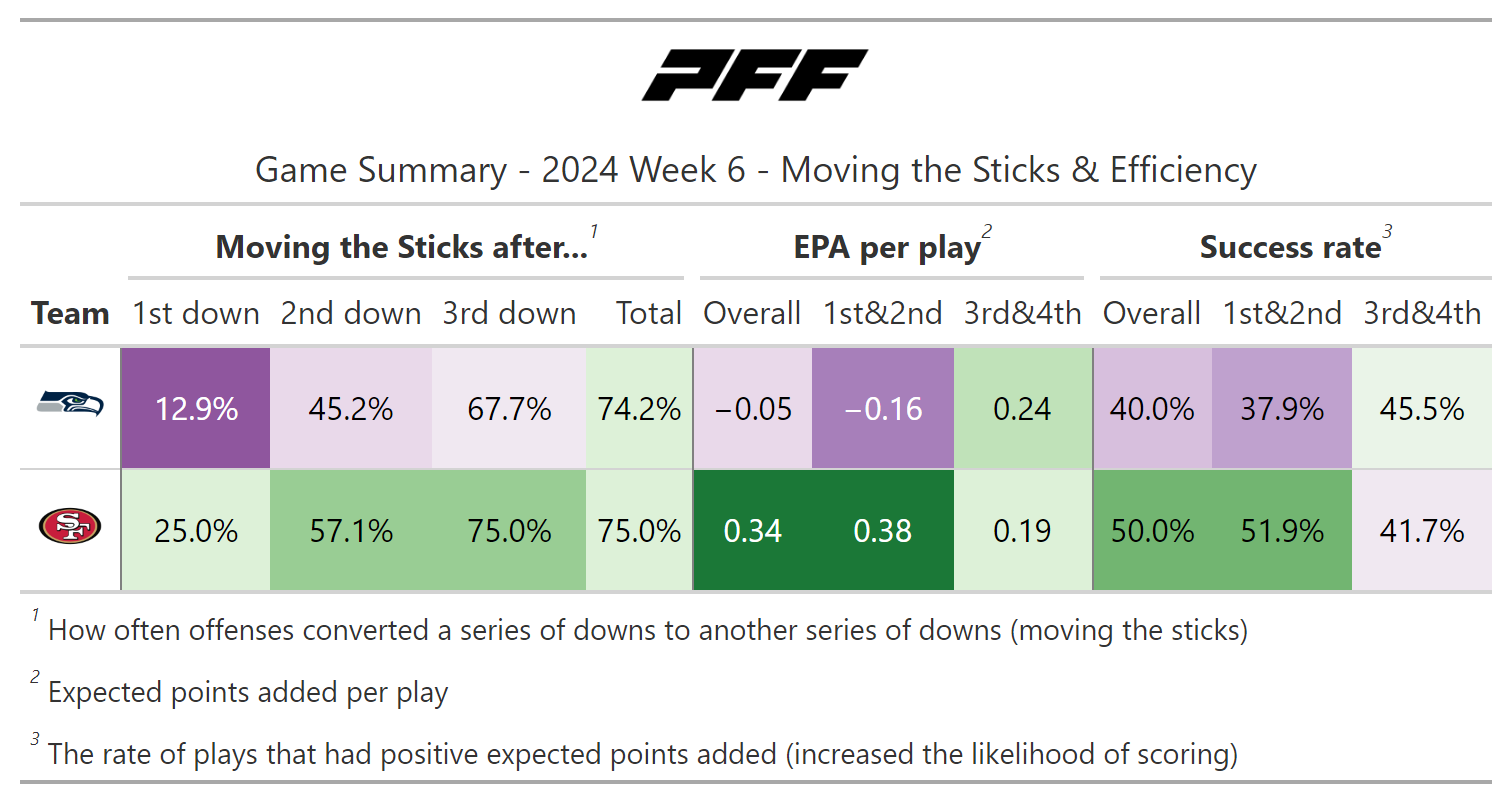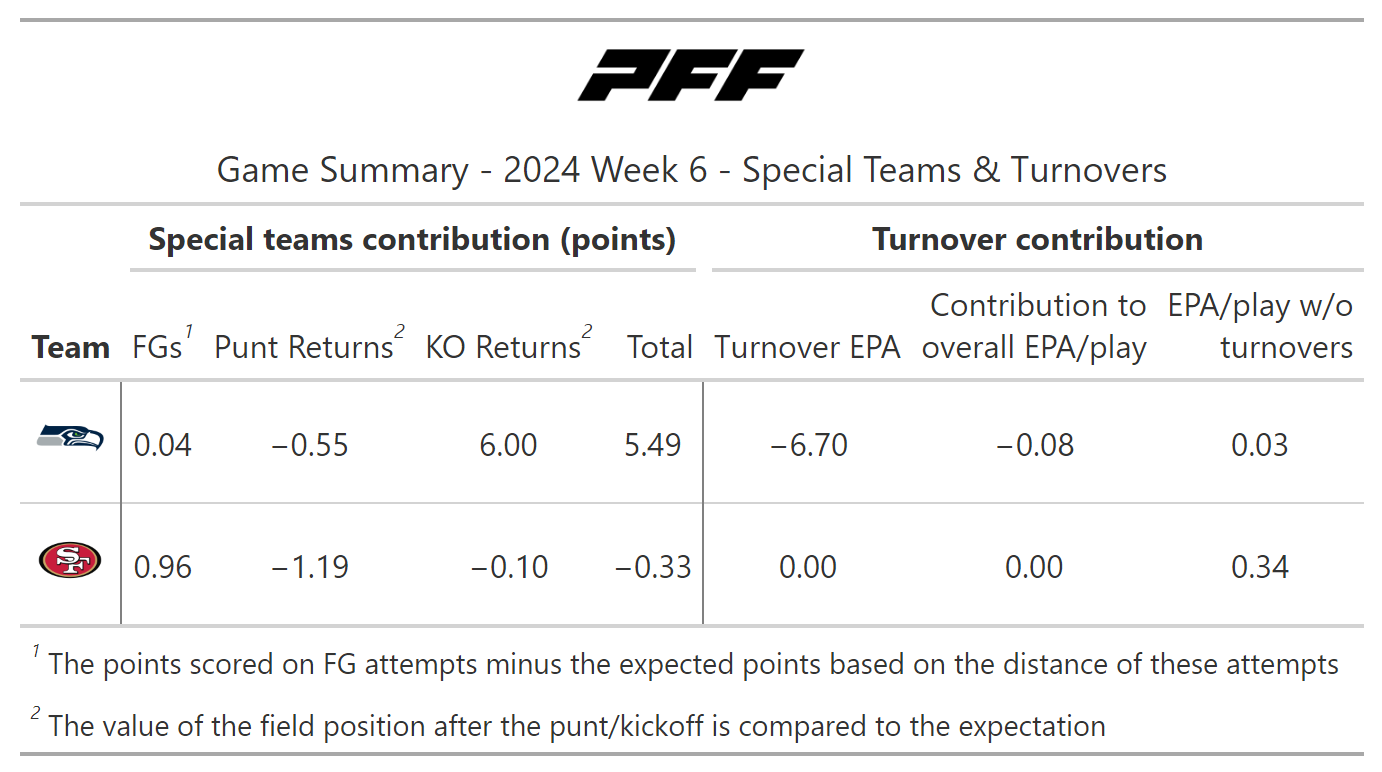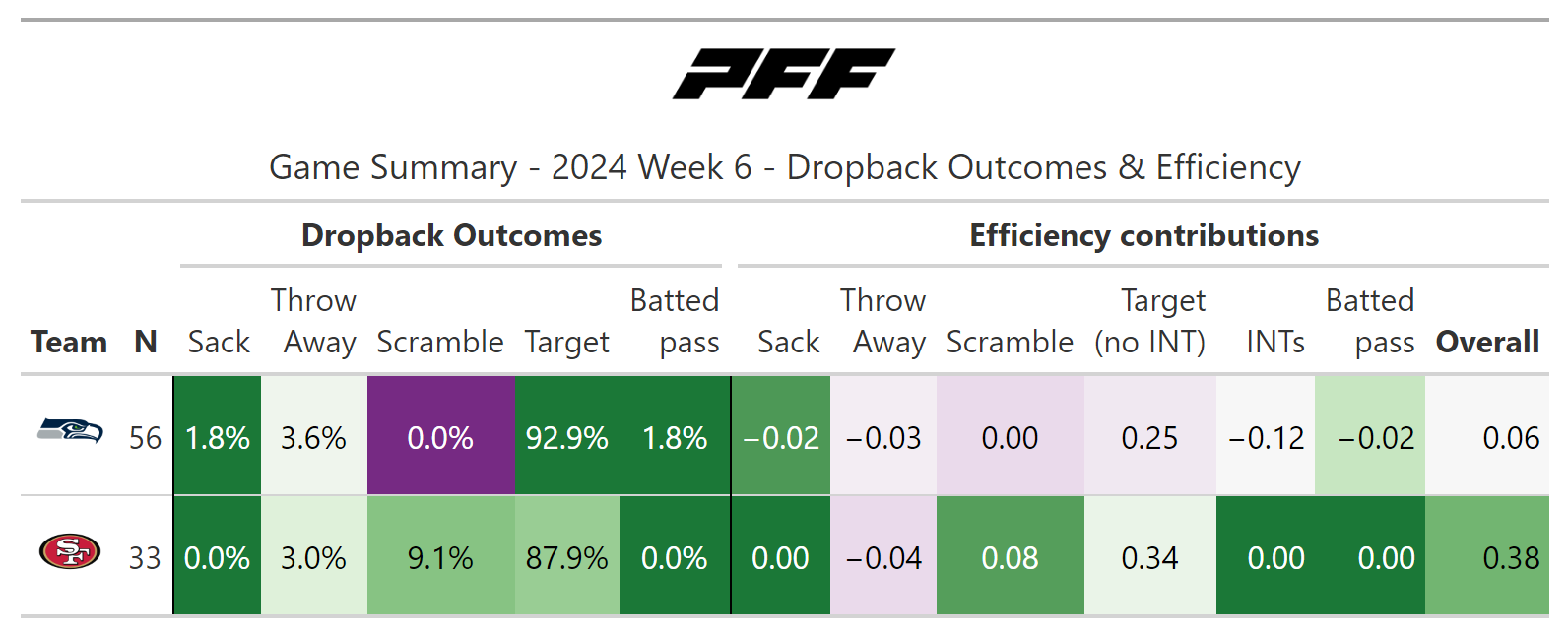• 49ers' efficient passing attack and consistent run game prove lethal: Thirty-two of the offense's 33 dropbacks ended in targets or mostly successful scrambles. Without any major setbacks in the passing game, San Francisco's offense is very hard to stop.
• Seahawks come up short late: Despite the 49ers' overall dominance, Seattle had a chance to take the lead in the fourth quarter.
• Unlock your edge with a PFF+ subscription: Get full access to all our in-season fantasy tools, including weekly rankings, WR/CB matchup charts, weekly projections, the Start-Sit Optimizer and more. Sign up now!
Estimated Reading Time: 3 minutes
The San Francisco 49ers got a much-needed win against the Seattle Seahawks, holding off a comeback attempt to eventually win 36-24 on Thursday Night Football in Week 6.
Game Summary

According to PFF's noise-canceled score metric, the 49ers dominated the game from the beginning. The only thing that kept the Seahawks in the contest was San Francisco's failure to turn scoring drives into touchdowns early on. Seattle once had possession with a chance to take the lead in the fourth quarter, but the offense couldn’t pull through, and the night ended in a deserving 49ers win.


Passing Summary
The 49ers' passing offense was very clean. Brock Purdy threw the ball away once, but 32 of the offense's 33 dropbacks ended in targets or mostly successful scrambles. Without any major setbacks in the passing game, San Francisco's offense is very hard to stop.

Receiving Summary
The Seahawks spread the wealth among their receivers, even though it’s still apparent that Jaxon Smith-Njigba and DK Metcalf are the clear No. 1 options in terms of targets and opportunities.

With Brandon Aiyuk, Deebo Samuel, George Kittle and Jauan Jennings all healthy, the 49ers will always produce through the air; one just doesn’t know who will get the largest piece of the cake. This time, it was Samuel who recorded more than 100 yards — because of his 76-yard touchdown catch-and-run.

Rushing Summary
Both teams had zero runs on late downs, which is a rarity in the NFL. The Seahawks didn’t run on late downs because they had to play catch-up the whole game, while the 49ers didn’t run on late downs because they were often successful on early downs already and had only 12 late-down plays in total.





 © 2024 PFF - all rights reserved.
© 2024 PFF - all rights reserved.